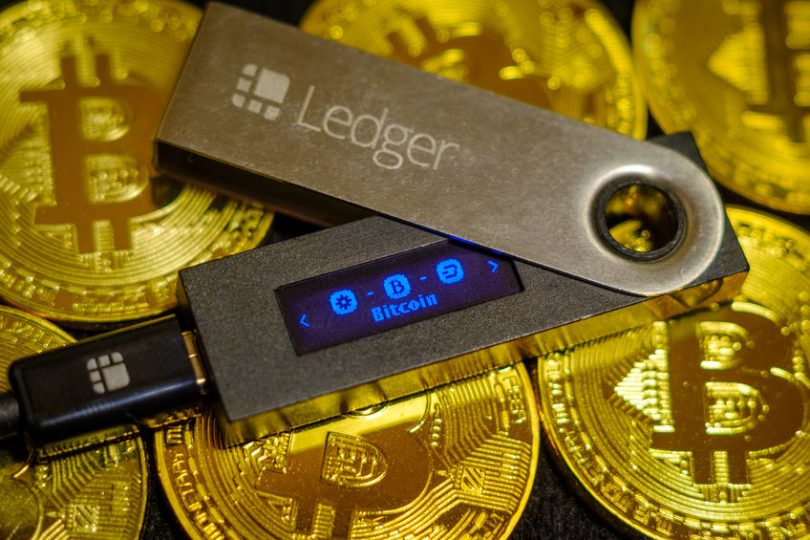In the rapidly evolving world of cryptocurrencies, one of the most essential tools for users is the crypto wallet. Whether you’re a seasoned investor or just beginning your journey in the world of digital currencies, understanding what a crypto wallet is and how it works is crucial. In this article, we’ll explore the types of Ledger Live wallets, their features, and how to choose the right one for your needs.
What is a Crypto Wallet?
A crypto wallet is a digital tool that allows users to store, send, and receive cryptocurrencies like Bitcoin, Ethereum, and thousands of others. However, unlike traditional wallets that hold physical cash or cards, crypto wallets don’t actually “store” your cryptocurrency in the way you might think. Instead, they store the cryptographic keys necessary to access and manage your digital assets.
There are two key types of cryptographic keys involved:
- Public Key: This is akin to an account number, which you share with others to receive cryptocurrency.
- Private Key: This is like a password, giving you access to your crypto assets. It is critical to keep it secure and private, as anyone with access to your private key can control your funds.
Types of Crypto Wallets
Crypto wallets come in various forms, each with its own advantages and use cases. Generally, wallets can be categorized into hot wallets and cold wallets:
1. Hot Wallets
Hot wallets are connected to the internet and are convenient for users who need quick and frequent access to their cryptocurrencies. They are ideal for everyday use, such as making transactions, trading, or storing small amounts of crypto for quick access.
Types of Hot Wallets:
- Software Wallets: These are apps or programs that you install on your computer or mobile device. Examples include Exodus, Electrum, and Trust Wallet.
- Web Wallets: These are online platforms that allow you to access your crypto from any device via a browser. Coinbase and Blockchain Wallet are popular examples.
- Mobile Wallets: Specifically designed for mobile devices, these wallets offer ease of use for people who need to access their crypto on the go. Examples include MetaMask and Mycelium.
Pros of Hot Wallets:
- Quick and easy access to crypto for transactions and trading.
- Suitable for smaller amounts that are frequently used.
Cons of Hot Wallets:
- They are more vulnerable to hacking because they are connected to the internet.
- Not recommended for storing large amounts of crypto long-term.
2. Cold Wallets
Cold wallets, on the other hand, are offline and provide a higher level of security. They are best for users who want to store large amounts of cryptocurrency safely, without needing constant access. Cold wallets are ideal for long-term storage, also known as “HODLing.”
Types of Cold Wallets:
- Hardware Wallets: Physical devices that store your private keys offline. Popular hardware wallets include Ledger Nano S, Trezor, and KeepKey.
- Paper Wallets: A paper wallet is a physical printout of your public and private keys. Although they are offline, paper wallets can be easily lost or damaged, so they require careful handling.
Pros of Cold Wallets:
- Much more secure than hot wallets since they are not connected to the internet.
- Ideal for long-term storage of large amounts of crypto.
Cons of Cold Wallets:
- Not convenient for frequent transactions or access to crypto.
- Lost or damaged devices can lead to permanent loss of access to your crypto if backup methods are not properly followed.
Key Features of a Crypto Wallet
When choosing a crypto wallet, it’s important to consider the following features:
- Security: Look for wallets that offer multi-signature support, two-factor authentication (2FA), and strong encryption to protect your funds.
- Backup Options: Ensure that the wallet provides options for securely backing up your private keys or recovery phrases in case of device failure.
- User Experience: Whether it’s a simple interface or advanced trading features, make sure the wallet is user-friendly and suits your experience level.
- Compatibility: Some wallets are designed for specific cryptocurrencies or blockchain networks, while others support multiple tokens. Choose a wallet that is compatible with the coins you plan to store.
Choosing the Right Crypto Wallet
Selecting the right wallet depends on your personal needs and goals. Here are some factors to consider:
- Frequency of Use: If you need access to your crypto frequently, a hot wallet is a better choice. If you only need to store large amounts for long periods, consider a cold wallet.
- Security Concerns: If you’re storing significant amounts of crypto, prioritize security by choosing a cold wallet or a hardware wallet.
- Cryptocurrency Support: Ensure that the wallet supports the cryptocurrencies you want to store.
- Backup and Recovery: Make sure you understand how to recover your crypto in case of wallet loss or failure. This is especially critical with cold wallets, where the loss of private keys can lead to permanent loss of funds.
